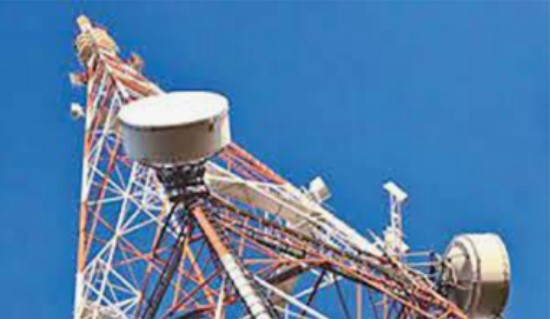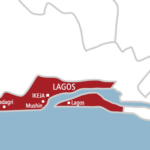Telecommunication subscribers and service providers are locked in a dispute over whether or not the mode of billing for data services have been altered in recent times.
While the subscribers tried to link the fast depletion of their data for browsing to alleged manipulation of the value by the operators, the latter insist that any such occurrences are consequences of high level of usage by the former. The operators said that once subscribers get it right, they will not be witnessing unexplained depletion of their data.
But experts told our reporter that rising operating costs due to Nigeria’s struggling economy might have forced the country’s telecom operators to reduce the value of data they sell to subscribers, even though they have not formally announced any additional charges.
Meanwhile, Daily Trust investigations show that the operators have also been complaining over what they describe as a 43 per cent rise in the cost of doing business in the industry.
Declining enrolment in NCE programmes threatens COEs’ sustainability – NCCE
NCC endorses shortcodes for promoting cultural content
Despite the high cost of doing business, however, the telcos maintained that they have not officially increased their tariffs.
Some of the subscribers who spoke to our correspondent now allege that a N2,000 data bundle for internet usage now gets depleted within three to five days, as against three to four weeks that they hitherto utilise same.
Mrs. Nafidah Zaynab, a teacher, told Daily Trust that before the rising costs of goods and services became a daily affair, she used to subscribe to an operator’s N2,000 data bundle and that would take her close to one month, even with heavy downloads of documents.
“But at the moment, I noticed that my N2,000 subscription now lasts me for four to five days”, she said.
The Lagos based teacher said many of her colleagues at a private school where she works had similar complaints. She urged the Nigerian Communications Commission (NCC) to act fast and address the rising concerns.
Similarly, Idowu Anabili, a trader, said he had decided to suspend data subscription for now as it is eating deep into his earnings. “I only subscribe when I have urgent and very important things to do online, things that would fetch more than the money I put into the subscription,” Anabili told Daily Trust.
Many other data users also had similar story about fast data depletion. Though they said the economy might have forced the telcos to reduce data value, they appealed to the government to address the issue.
Abdullahi Yunus, who has a café where he helps students to register for the West African Examination Council (WAEC) examination, the National Certificate in Education Council (NECO) examination, and the Joint Admissions and Matriculation Board (JAMB) UTME, among others, said has noticed speedy data depletion in his business, in recent times.
Yunus, whose shop is around the Bayero University Kano (BUK) Old site, said he spends more these days.
“I pay for bulk data and I subscribe to three of the major providers. At peak periods when students are rushing to register for any of the examinations, I used to spend like N30,000 in a month. However, I spend between N70,000 and N100,000 now. It is actually an unexplained hike,” he said.
Aliyu Yusuf, a public servant in Abuja, who also buys bulk data for his family said it is now becoming a burden on him.
“I am not happy with the way the data depletes these days. When I came with the idea of bulk subscription for the family, it was to control how my children browse.
“I ensure that they don’t have personal data on their phones, meaning even though they have their phones, they have to use the hotspot at home. This initiative helps me and my wife to monitor the activities of our children.
“It was easy before because we don’t spend much. Sadly, the cost of data is now encroaching into what is budgeted for other things,” he said.
We didn’t add charges – Airtel
The spokesperson for Airtel Nigeria, Mr. Femi Adeniran, told Daily Trust on phone that Airtel had neither increased its data tariffs nor reduced its data value.
“At Airtel Nigeria, we are yet to increase our data prices. When you talk of data depletion, a lot of factors come in. It could be that subscribers download more than before. It could be that a lot of apps run in the background which makes their data burn fast. There are many other factors”, Adeniran said.
MTN and 9mobile spokespersons, Lakinbofa Goodluck and Chineze Amanfo could not be reached for comment.
But an MTN official, who pleaded anonymity because he was not cleared to speak on the issue, told our correspondent that data is not depleting quickly but that “volumes of documents and other stuffs we do or surf with our data are increasing daily.”
According to the source: “Now, what people do with their phones are increasing every day. People use their data for more things nowadays unlike before. That is why people now think their data get depleted quickly. It is not! There is nothing like data depletion. It is how you use it,” the MTN official said.
The Chairman of the Association of Licensed Telecommunications Operators of Nigeria (ALTON), Gbenga Adebayo, who is the official spokesman for all the operators, did not also respond to questions sent to him.
He also did not answer calls made to his mobile line.
We haven’t given permission for price increase – NCC
The NCC has said it had yet to give permission to telecom operators to increase tariffs or reduce value of their data.
NCC’s Director of Public Affairs, Reuben Mouka, told our correspondent that telcos had not increased data tariffs and they could not have done so without Commission’s permission.
…Explains data depletion
But the NCC on its website had said that the issue of data depletion being experienced by telecommunications subscribers might be attributable to several factors, which can be categorised as technical and non-technical.
The Commission said, technically, most browsers play videos by default even when the user only opens a site to read text.
It also cited automatic updates of apps and automatic uploads of videos and pictures to the cloud on smartphones as other factors that drain data quietly.
Other technical factors, according to the NCC, include the increase in internet speed due to migration to 4G and 5G, which automatically plays video in high-quality formats, thus consuming more data.
NCC listed the non-technical factors to include the low purchasing power of subscribers, which leads to the purchase of small bundle sizes with short periods of use, leading to an increased frequency of data depletion.
Others are growth of social media, online advertisements and default audio-visual activations in web browsers and apps; lack of consumer awareness and education and use of sub-standard and fake subscriber devices.
NCC in a recent SMS message to telecom users in the country said to enjoy their data for longer periods, they should “turn on data saver: go to settings, click on connections, data usage and then turn on data saver. Click https://consumer.ncc.gov.ng to learn more.”
MNOs collective explanation
To address widespread complaints about data depletion, Nigeria’s Mobile Network Operators (MNOs) have also collaboratively launched a consumer sensitisation campaign aimed at providing practical guidance for more effective data management.
This initiative, the MNO said, is designed to enhance consumer satisfaction by helping subscribers optimize their data usage.
The MNOs highlighted several smart data usage behaviours that can help prevent data depletion.
These include disabling automatic app updates, enabling data saver mode, and closing unused apps to prevent background data consumption.
To prevent unauthorised access and strengthen data security, the MNOs advised consumers to use stronger passwords and regularly update their hotspot and Wi-Fi passwords to prevent unauthorised access.
They said for a seamless video streaming experience, users should ensure they have sufficient data and turn off auto-downloads to effectively manage content consumption.
With the advent of advanced network technologies like 4G, LTE, and the latest 5G, which offer ultra-fast data speeds and enhanced browsing and streaming experiences, the speed of data consumption and pattern have increased significantly. Consumers are encouraged to understand these changes and manage their data usage accordingly.
“It is important for consumers to familiarize themselves with the specific terms and conditions of their data plans,” the MNOs emphasised.
“Different plans cater to various needs, weekend-specific plans, social media-only plans, and regular plans configured for night use only”, they said.

 Join Daily Trust WhatsApp Community For Quick Access To News and Happenings Around You.
Join Daily Trust WhatsApp Community For Quick Access To News and Happenings Around You.


